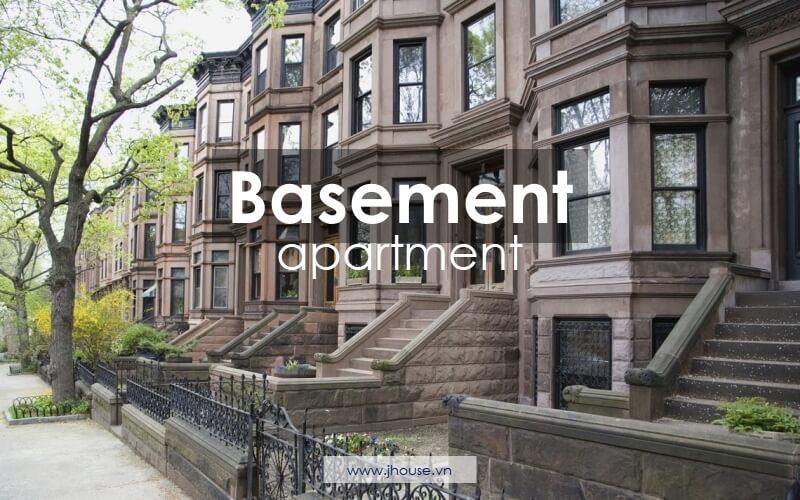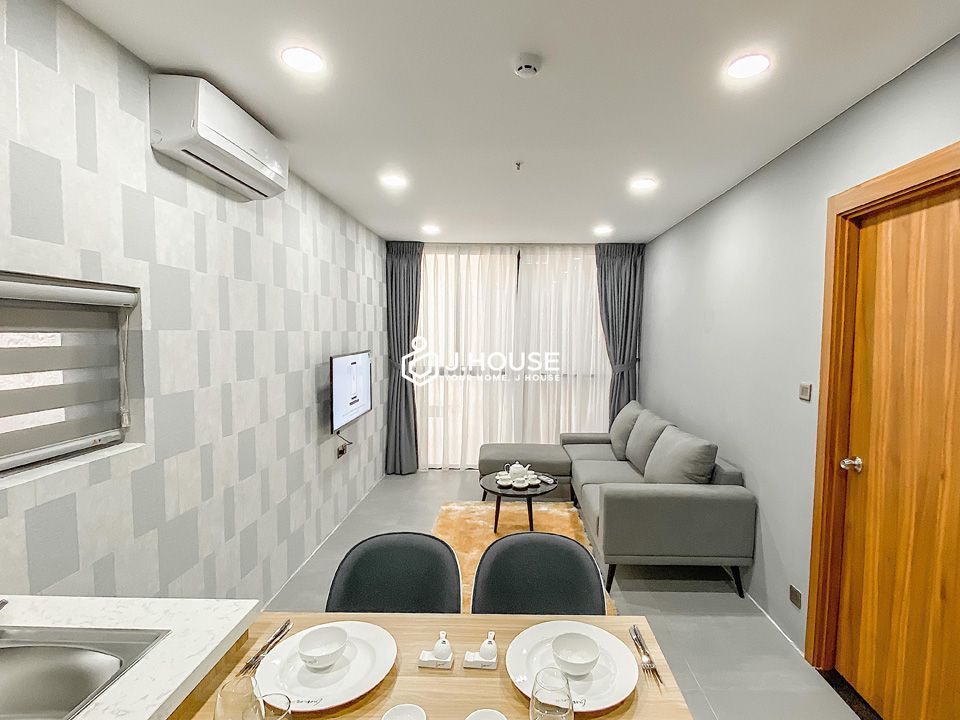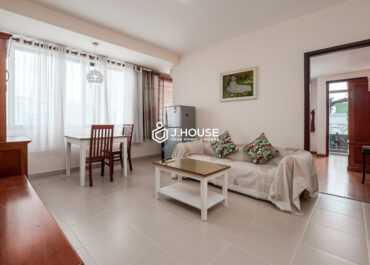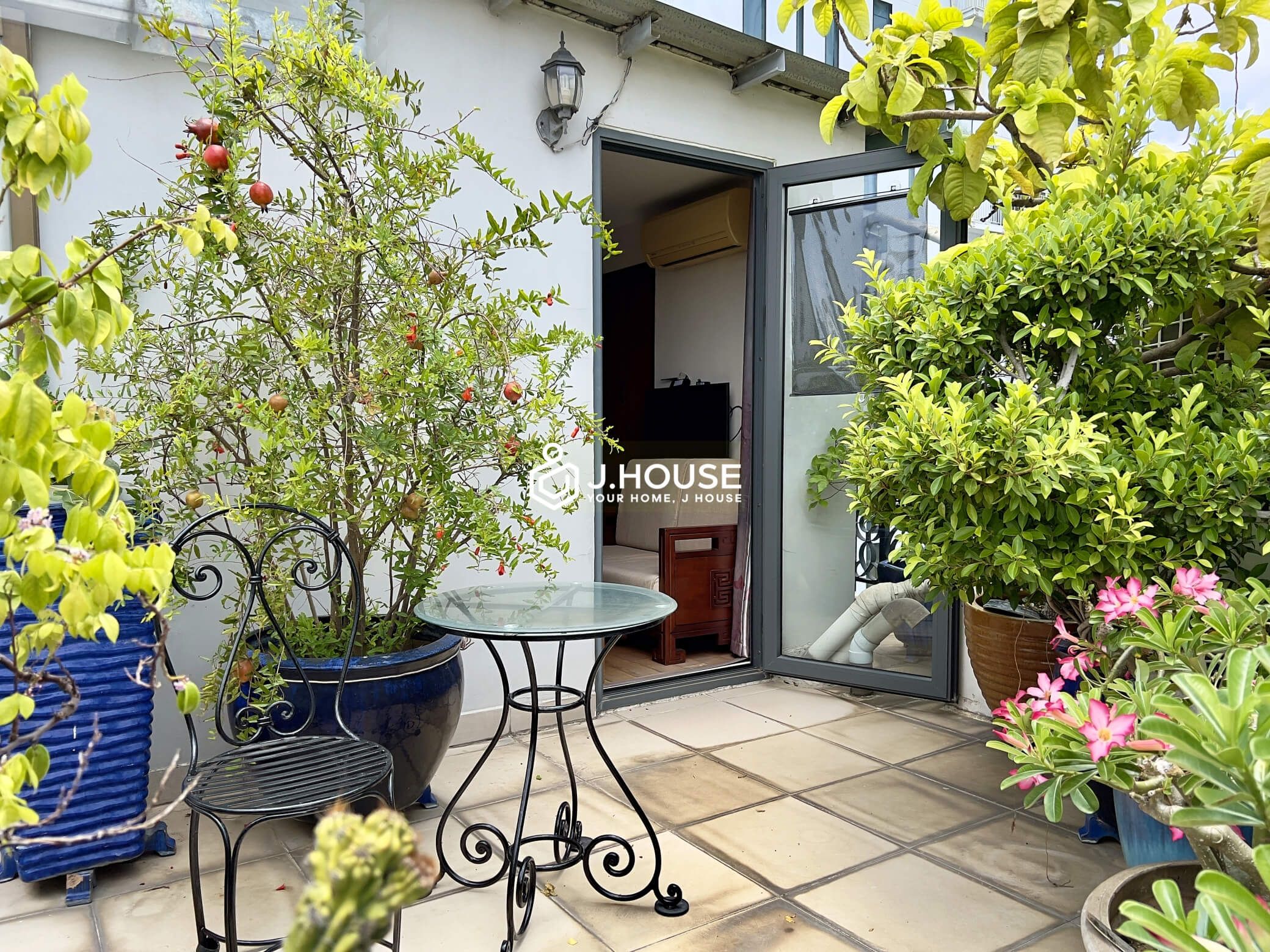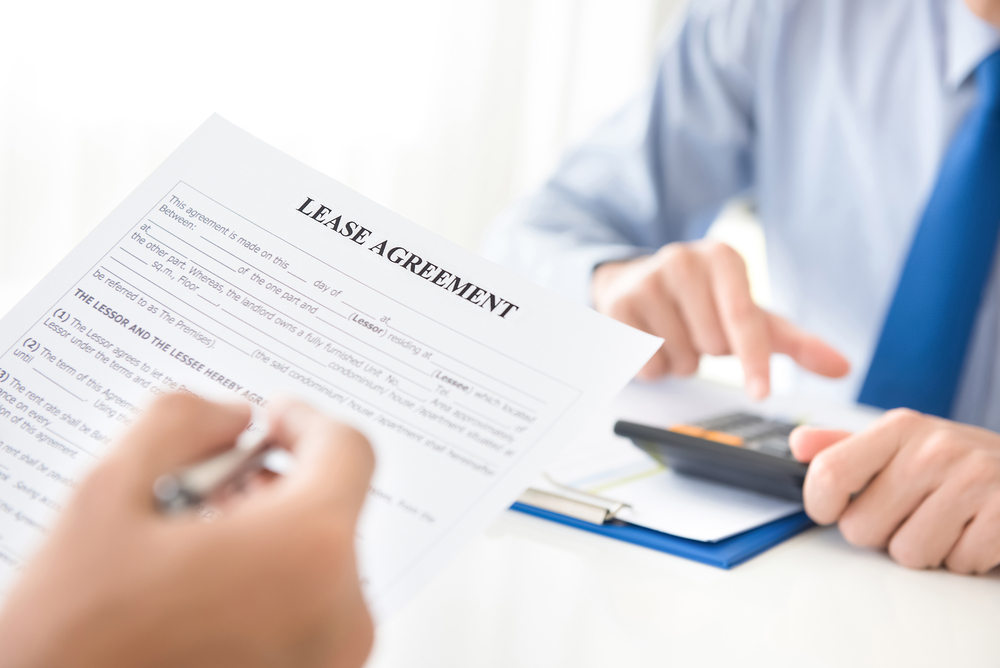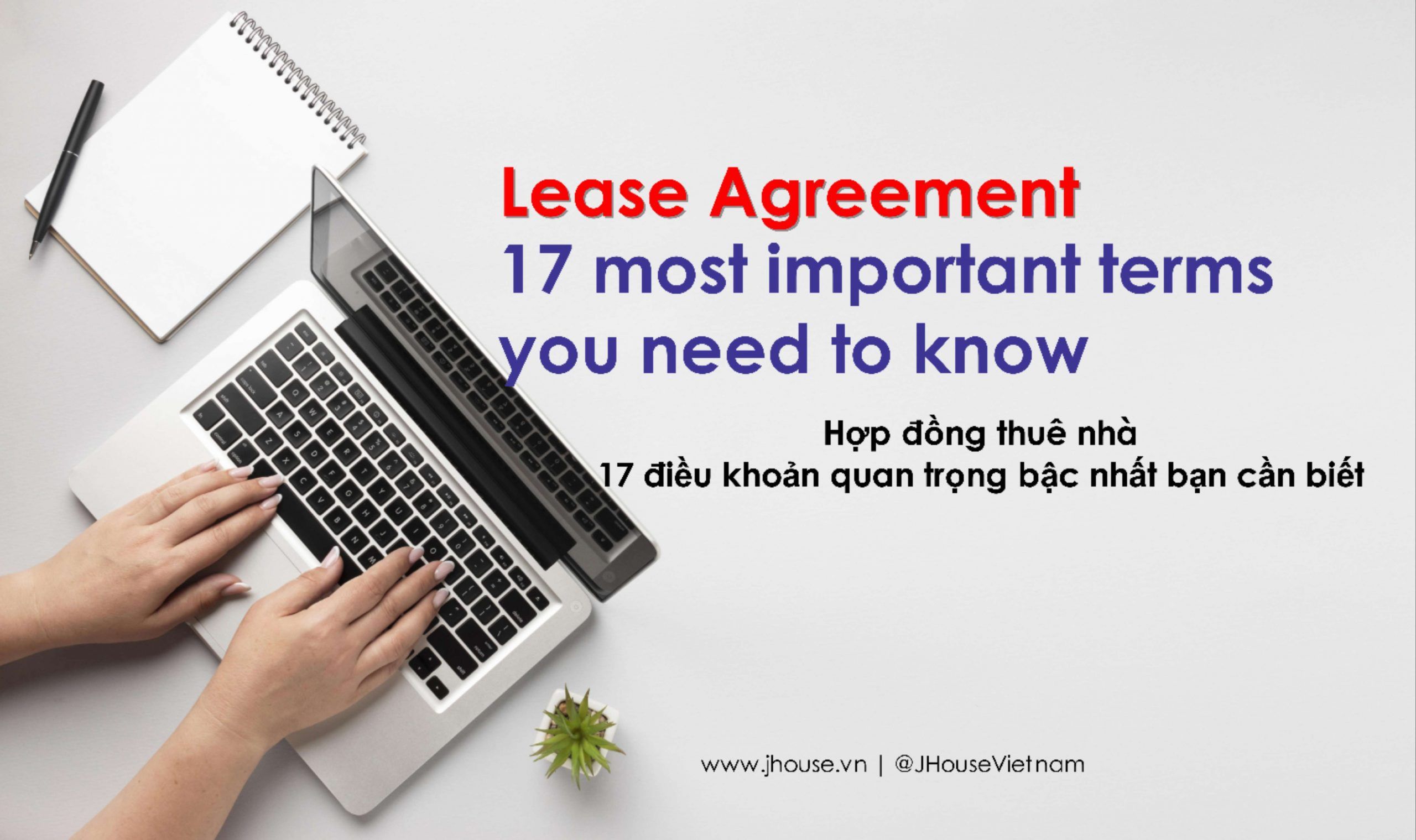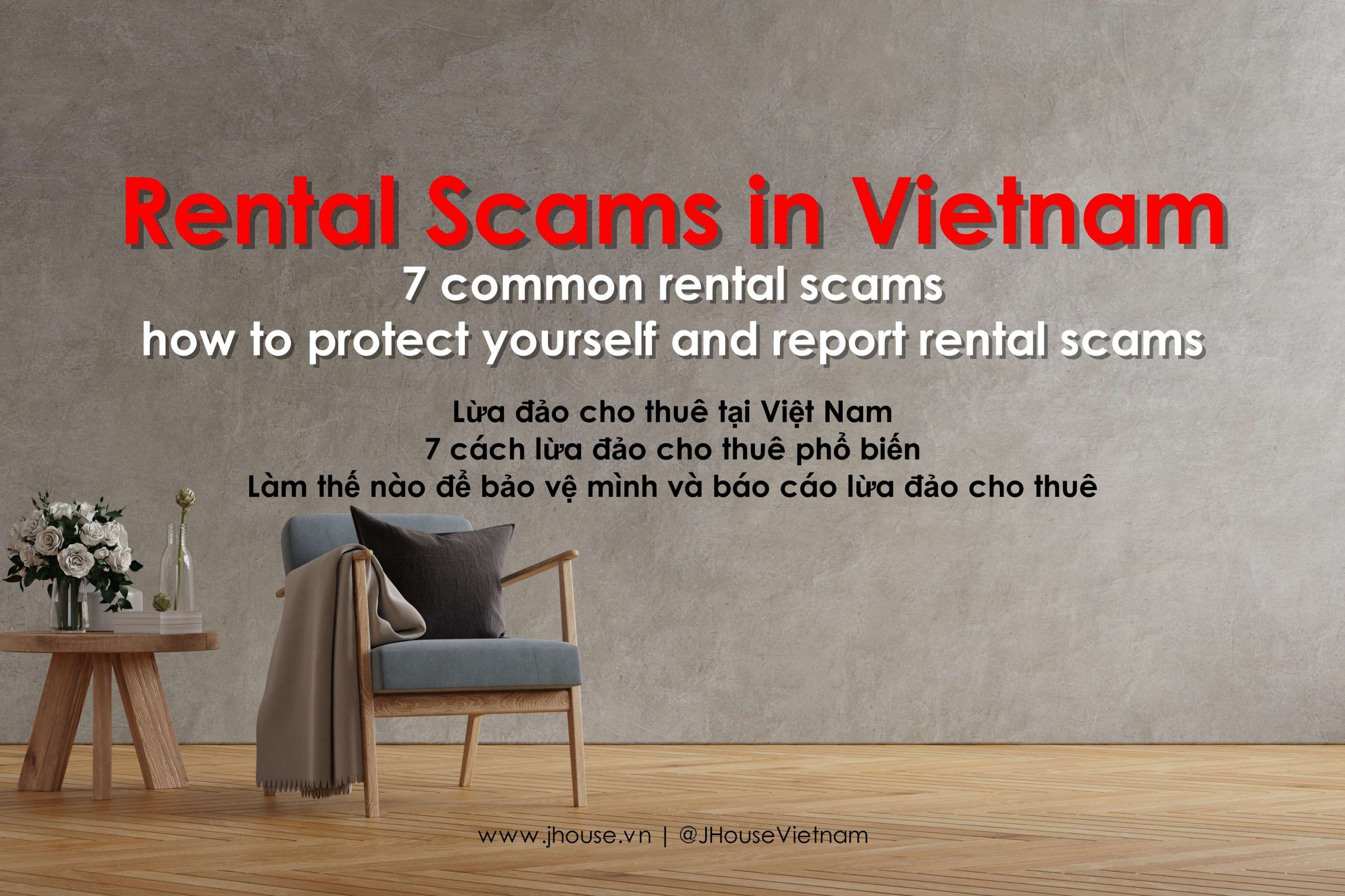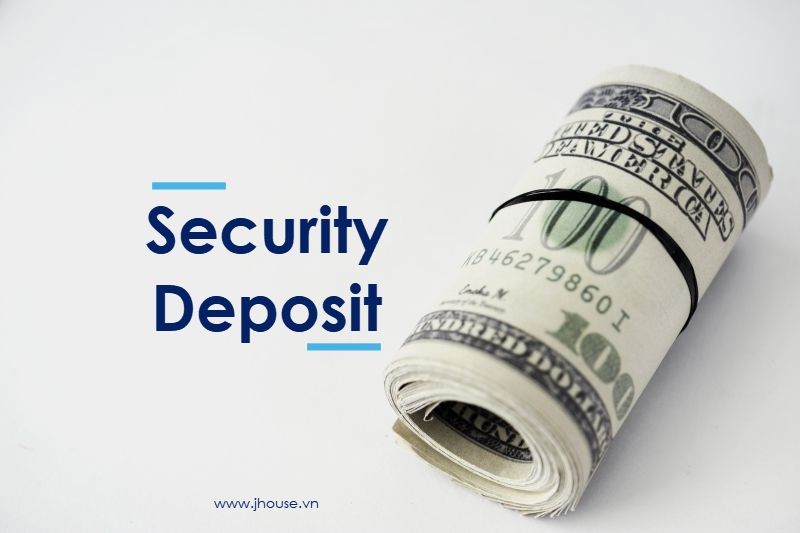Latest Posts
Latest Properties
Apartment Leasing
Security Deposit Agreement: Free Download Sample Agreement 2021
Tenant’s Guide To Normal Wear And Tear When Renting In Vietnam
What Can A Landlord Deduct From My Security Deposit In Vietnam?
How to Get Your Security Deposit Back? 4 Easy Steps
Sublease An Apartment In Vietnam: Basic Things You Need To Know
How To Negotiate Rent & Formula For Successful Negotiate Rent
Request A Rental Discount: 6 Scenarios Common & Rent Reduction Letter Template
Termination Of Tenancy Agreement Early: How To Minimize Penalties
Breach Of Contract: 15 Common Violations & How To Safely Break A Contract?
Lease Agreement: 17 Most Important Terms You Need To Know - Hợp Đồng Thuê Nhà: 17 Điều Khoản Quan Trọng Bậc Nhất Bạn Cần Biết
7 Common Rental Scams, How To Protect Yourself & Report Rental Scams
What Is A Pet Deposit? How Does It Work In Vietnam?
Is your pet a member of your family? Are you planning to have a pet in the future? Are you looking for a pet-friendly house? Are pets allowed in Vietnam? And how does it work?
What is a pet deposit? And How does it work in Vietnam?
Let JHouse provide you with helpful information and suggestions about pet deposit and how it works in Vietnam. The article provides information for tenants, owners and agents, … don't miss the information. Let's just get started.

1. What is a pet deposit?
A pet deposit is a one-time down payment that the tenant must pay the owner to have the pet to be raised in the house by him or her.
Like any other renting security deposit, a pet deposit helps ensure that tenants keep hygiene, follow the residence's pet rules, and be careful not to let their pets damage the property. The pet deposit is refundable depending on whether the pet damaged the property and the extent of the damage.
Read more: What is the meaning of security deposit? And popular types of deposit when renting an apartment
2. Laws and regulations on pets rising in Vietnam
In Vietnam, there are Laws and Regulations on pets. Let's look with JHouse in detail:
- Law on Livestock No. 32/2018/QH14. Article 69, section 2, chapter V: Regulations on humane treatment of livestock.
- Circular 07/2016/TT-BNNPTNT. Regulations on vaccination of pets. If pet owners fail to vaccinate their dogs and cats against rabies, they may be fined from 600,000 VND to 800,000 VND (based on Clause a, Article 2 of Decree No. 90/2017/ND-CP).
- Decree 90/2017/ND-CP. Regulations on wearing muzzles for dogs, dog leashes when going out. If the pet owner does not wear a muzzle for the dog or does not keep the dog on a leash, there is no one to walk the dog when taking the dog to a public place will be fined from 600,000 - 800,000 VND.
- Civil Law No. 91/2015/QH13. According to article 603, if a pet causes damage to another person, the owner of the pet must compensate.
- Circular No. 02/2016/TT-BXD promulgating Regulations on management and use of apartment buildings.
3. Is a pet deposit discriminatory?
The answer is definitely not!
Vietnam is the same as other countries on over the world. We love and cherish our pets. That's why the Law and regulations on raising pets in Vietnam were published.
Pet deposit is NOT DISCRIMINATION! It is like an amount of money that the owner temporarily keeps for the tenant. This will let owners protect their property against harmful actions from pets and ensure that tenants are responsible for their pets during the leasing time.

4. What is the difference between pet deposits and pet fees?
- The pet deposit is a one-time payment and will be refunded at the end of the lease. The pet deposit will be deducted if the pet damages the property, in this case, the deposit may only be partially refundable.
- The pet fee is a non-refundable payment. It can be a one-time payment or it can be paid as a monthly fee such as rent, electricity, water, parking or other monthly renting utilities payments.
While paying extra for your pet to live with you is not really interested, it's necessary for both tenants and owners. Owners need to protect their property in the event of damage, and tenants need to prove that they are responsible for their pets.
5. When do tenants need to pay pet deposits?
As soon as the leasing contract is signed, the tenant needs to pay a pet deposit. May be paid with other rental deposits and, it may or may not be the same payment date as the first month's rent.
6. How much is the pet deposit?
There are no regulations on pet deposits in Vietnam.
However, according to the general practice in each locality, the pet deposit will range from 2-12 million ($100 - $500) depending on the number and size of the pets.
Helpful tips from JHouse for tenants: If you are required to pay a pet deposit, negotiate with the owner to a minimum or you can work with agents, give them an amount of pet deposit payment that you can pay, and they will negotiate with the owner on your behalf.
7. Are there any restrictions on pet breed or size?
While that may seem unfair, there are breed and size restrictions on pets in Vietnam.
- Commonly accepted pets in Vietnam such as: Dog, cats, mouse, rabbits, squirrels, small geckos, fish, etc. And there are size restrictions based on weight. Normally, in apartments and serviced apartments, pets with a weight from 5kg to 10kg or less are accepted. For single-family homes and villas, there is no weight limit for pets.
- Pets that are not accepted in Vietnam such as pigs, salamanders, chickens, birds, snakes, etc.
Useful tips from JHouse for tenants: Please provide your pet's information (photo, weight, characteristics, ...) to agents and owners when you are looking for a new hose and make sure the owner agrees with your pet and it's reflected in the leasing contract.
8. What should tenants pay attention to in the rental contract when raising pets?
In order to avoid future troubles or unforeseen, tenants need to ask the owner to clearly specify the terms: Pet allows agreement, pet deposit and content related to the rights of both parties. You should pay attention to the policy of deposit refund, deposit deduction, wear and tear, etc... To get your security deposit back quickly and safely at the end of the contract.
If you do not currently have a pet, but you have plans to have one in the future. You need to let the owner know about this and it should be reflected in the leasing contract.
9. What should tenants do to protect their pet deposits?
A rental deposit is a payment that is refunded to the tenant at the end of the lease. That's why tenants need to protect their pet deposits. Here are some helpful suggestions from JHouse for how tenants can protect their pet deposit:
- Ask the owner to provide a pet deposit clause in the lease.
- Provide pet owners with information such as: Periodic health checks, periodic vaccination books, ...
- Take actions that are encouraged when rise pets such as: Train the pet, wear a muzzle for the pet when going out on the street, provide enough food & water for the pet, do not let the pet make noise, Periodic health check for pets, …
- Protect assets inside the house such as sofa cover, chair/table legs, floor mats, etc.
- Actively clean regularly for pets. Clean up when your pet defecates or urinates.
- Follow the residence's “Pet Rules”.
- Actively repair or replace damaged property caused by pets.
- Use pet care services at home or send pets to pet care clinics, … when you travel or go on a business trip for a long time.
You can also refer to 11 tips to protect your rental deposit when renting a house in Vietnam.

10. What should tenants do with their pets?
To protect and avoid possible risks caused by pets, tenants are encouraged to take the following actions:
- Routine vaccinations for pets
- Periodic health check for pets
- Pet training
- Wear a muzzle for your pet when going out
- Arrange space for pets inside the house.
11. What do owners need to do when allowing pets?
So happy that you are a pet-loving owner. Your home always welcomes tenants with their pets.
But you are having concerns about how to control the risks caused by the tenant's pet. Here are some helpful suggestions from JHouse on what owners need to do to have a good starting business.
- If you have a plan to build an allowing pet residence, you can design equipment in the house that is pet-friendly and less damaged such as sofas, dining tables, floors, walls, corridors, trees, balconies, etc.
- Put a separate pet deposit clause in the rental contract.
- Provide tenants with “Regulations for pets” and “Activities are encouraged to follow when keeping pets” in your home.
- Ask the tenant to provide information about the pet such as: term health check, vaccination record, etc.
- Ask other residences who rent in the same building about the pets while living in the same place
- If your house has a lot of space, you can design a place for the pet community where all pets of the building can play together.
12. What should real estate agents notice when consulting pet-friendly housing?
If you are a realtor and you have a tenant who has a pet. These are useful suggestions from JHouse so that you can advise and provide good housing solutions for tenants and owners.
- Ask tenants to provide you with information about their pet: Photo, weight, quantity, vaccination record, ...
- Provide and deal with owners on tenant pet issues. Make sure the owner accepts the tenant's pet.
- Provide tenants with a list of properties that allow pets and provide specific notices of the house about pets to tenants.
- Clarify pet permission and pet deposit in the rental contract.
We, JHouse hope that you have a deeper understanding of pet deposit and how it works in Vietnam. If you still have concerns and questions that need to be answered, JHouse staff is always ready and happy to assist and advise you on pet-friendly housing solutions in Vietnam.
JHouse Content Team The in-depth content development team on housing services for foreigners & Vietnamese in Vietnam. The content is simple, easy to understand, logically arranged to bring readers useful topics and information from real experiences. JHouse welcomes sharing & copying from you – Attach source & quote from JHouse, please!
Register Temporary For Foreigners When Renting A House In Vietnam
Are you a property owner, landlord, accommodation owner, etc. are renting a house to foreigners, or you have foreign friends/relatives living in Vietnam and want to know about regulations, procedures and fees for temporary residence registration for foreigners in Vietnam.
If you are a foreigner in Vietnam for any purpose (tourism, business travel, work, etc.), you need to be registered for temporary residence in Vietnam in accordance with the law to ensure your rights and interests for foreigners in Vietnam.
Let JHouse provide you with information about temporary residence registration for foreigners and how it works in Vietnam. The article will have many legal documents to compare and many other useful information, so please be patient and do not skip any information. We are sure it will be useful to you. Let's just get started.
Register temporary for foreigners when renting a house in Vietnam
1. What is registration of accommodation for foreigners?
Temporary residence registration is an act by which a property owner declares to the local police that there are foreigners staying at his house within 12 hours (or 24 hours) from the time the foreigners enter in the accommodation.
2. Why is it necessary to register temporary residence for foreigners when renting a house?
- For property owners: To prove the compliance and execution of the regulations on accommodation business of Vietnamese law. No penalty for not registering temporary residence for foreigners when renting a house and to supervise tenants.
- For foreigners when renting a house: To prove that foreigners comply and execute the provisions of Vietnamese law. No penalty for not being registered for temporary residence. And especially, temporary residence confirmation is also an extremely important document for foreigners to: extend visas, apply for temporary residence cards, verify criminal records and supplement work documents
3. Is there any law on temporary residence registration for foreigners when renting a house?
Vietnamese law has regulations on temporary residence registration for foreigners when renting a house in Vietnam. Specifically applied by the following legal documents:
- Law on entry, exit, transit and residence of foreigners in Vietnam. Issued on 16/06/2014. See details of Law No. 47/2014/QH13.
- Amending the law, supplementing a number of conditions of the Law on entry, exit, transit and residence of foreigners in Vietnam. Issued on 25/11/2019. See details of Law No. 51/2019/QH14.
- Residence Law No. 68/2020/QH14. Issued on 11/13/2020.
- Circular 35/2014/TT-BCA. Issued on 09/09/2014.
- Decree 31/2014/ND-CP. Issued on 18/04/2014.
- Decree 167/2013/ND-CP. Issued on 11/13/2013.
- Circular 04/2015/TT-BCA. Issued on 05/01/2015.
- The latest regulations on entry and exit are updated at “Vietnam exit portal” - https://xuatnhapcanh.gov.vn/en.
4. What do foreigners need to do to protect their rights?
Here are useful tips from JHouse for foreigners to protect their legal rights when renting a house.
- Clarifying the terms of temporary residence registration for tenants in the rental agreement. It clearly states who is the performer, how long, what documents to provide, how fees are charged, etc.
- Prepare necessary documents and information to provide the owner when moving into the house. Please provide the owner (photocopy): Passport, Visa, temporary residence card and work permit (if any). Show the owner you're serious about this.
- Ask the owner to provide proof of your completed temporary residence registration (online form or printed documents).
- If the owner is late in registering for temporary residence, ask the owner to give you a written explanation of the reason for the delay. It will be very useful for you in the worst case that the police check the accommodation.
5. Deadline for temporary residence registration for foreigners?
According to regulations on temporary residence registration for foreigners in Clause 2, Article 33 of the Law on Entry, Exit, Transit and Residence of foreigners in Vietnam No. 47/2014/QH13, within 12 hours from when a foreigner comes to the accommodation, the owner must complete registering of temporary residence (for the remote areas, the deadline is 24 hours).
Thus, for big cities like Ho Chi Minh, Hanoi, Da Nang, Binh Duong, Can Tho, Nha Trang, etc., the deadline for temporary residence registration for foreigners coming to stay is 12 hours.
6. Who will register the accommodation for foreigners?
According to the law, the property owner, the accommodation owner, the direct manager or the person legally authorized by the property owner is the person who registers the temporary residence for foreigners when renting.
7. Are real estate agents allowed to apply for temporary residence registration for tenants?
Brokerage agents are not allowed to do temporary residence registration for foreigners when renting a house.
However, in case the property owner legally authorizes the brokerage agent, then the brokerage agent is allowed to make temporary residence registration.
8. Which are the fees and who pay for them?
Currently, according to the provisions of the Law, the registration of temporary residence for foreigners is completely free of charge.
However, please follow the local practice. That's the best way for you to get it done quickly.
9. Procedures for temporary residence registration for foreigners in Vietnam
There are two ways to register temporary residence for foreigners in Vietnam: Register for temporary residence online, or register with a declaration form directly at the police station.
-
Register for temporary residence online:
Step 1: The owner accesses the website of temporary residence information declaration of the local Immigration Department. For example: Ho Chi Minh City (https://hochiminh.xuatnhapcanh.gov.vn/), Hanoi (https://hanoi.xuatnhapcanh.gov.vn/).
Step 2: Sign up an account to register temporary residence for foreigners by filling in information such as name of accommodation, address, representative, phone number, ...
Step 3: Log in and register temporary residence information for foreigners.
-
Register by form of declaration form directly at the police office:
Owners need to prepare documents including: a) Passport of tenants; b) Form of confirmation of temporary residence for foreigners (with signature of the tenant); and c) Declaration of temporary residence for foreigners (Form NA17 issued under Circular 04/2015/TT-BCA). Bring the file to the ward (district) police to register and receive the confirmation form back.
10. What documents do foreigners need to provide for temporary residence registration?
- In case of online temporary residence registration: Tenants need to provide the following documents (photocopy): Passport, Visa, temporary residence card and work permit (if any).
- In case of direct temporary residence registration: Tenants need to provide the reason for temporary residence registration and signature on the Application for Confirmation of Temporary Residence for Foreigners. Please contact the staff of JHouse to get [Form for confirmation of temporary residence for foreigners].
11. When do the police have the right to check residency?
The police have the right to check the residence at any time. Owners and tenants should note: Police need to wear uniforms, have name tags and especially "have no right to arbitrarily enter to check the residence".
According to the Law on Residence 68/2020/QH14, Circular 35/2014/TT-BCA and Decree 31/2014/ND-CP, “The form of residence inspection is conducted periodically, irregularly, or upon request. demand for crime prevention and combat, maintaining security and order."
12. What do foreigners need to do when the police check their residence?
- Check the validation of the police by examining the police uniforms and name tags.
- Provide passports, visas, temporary residence cards to the police
- Provide a Form of Confirmation of Temporary Residence for foreigners with police stamped and signed. Please copy a few copies, it will be useful for you.
- If you have not been registered as a temporary resident by the owner. Please provide written feedback from the owner about the delay in temporary registration.
13. Is the tenant or the landlord penalized when failure to register temporary residence before?
If not declare temporary residence, both tenants and lessors will be fined.
- For property owners, landlords, if you do not register temporary residence in accordance with regulations for tenants, there will be a fine from 2,000,000 to 4,000,000 VND - According to article 8 of Decree 167/2013/ND-CP.
- For foreigners who rent houses. If not registered for temporary residence in accordance with regulations, there will be a fine fine of between 500,000 and 5,000,000 VND - According to article 17 of Decree 167/2013/ND-CP.
14. What should owners and tenants do at the end of leasing contract?
- The owner should inform the police about the end of the tenant's temporary stay and, or delete temporary residence registration at the website of temporary residence information declaration of the Immigration Department.
- Tenants need to notify or provide written termination of tenancy to the owner and request removal of temporary residence registration.
Complying with the temporary residence registration for foreigners in accordance with laws is a great way to ensure the rights and interests of both tenants and lessors.
JHouse hope that all of the above information will help property owners and lessors understand more about temporary residence registration and how to do it. And help foreigners understand more about temporary residence registration in Vietnam, what needs to be done.
Don't worry if you are having questions about registering temporary residence for foreigners when renting a house in Vietnam. JHouse staff is always ready to provide you with useful information about temporary residence registration.
©JHouse Team Website: https://jhouse.vn/ Fanpage: https://FB.com/JHouseVietnam
Everything You Need to Know About Your Security Deposit
You are the owner, tenant or agent, … and you are going to sign a leasing contract. You are worried and have many questions about the deposit. Why deposit and deposit to insure for what? You have not understood your responsibilities and obligations when paying for a deposit. And there are too many other questions about the deposit that you need to understand to reassure yourself and make the right decisions.
Let JHouse provide you with information about the deposit and how it works in the Vietnamese market of leasing. The article will be long and full of useful information, so please be patient and do not skip any bullet. We are sure it will be useful to you. Let's just get started.
Everything You Need to Know About Your Security Deposit
1. What is a security deposit?
A security deposit is a specific amount that a tenant must pay to the owner which is seen as a commitment to perform the lease and protect/maintain the owner's property. The security deposit is seen as a tangible means of security in case of damages, loses the property or fails to fulfill the terms of the lease cause by tenants.
2. How many types of security deposit are there?
A security deposit is a common term that refers to the amount of money a tenant must pay to the owner. However, the deposit will cover the following types:
- Deposit for contract performance and commitment to property protection.
- Deposit for pets. See more pet friendly apartments at JHouse.
- A separate deposit for a high-value or special property.
- Deposit for car parking.
3. Are there any alternatives to the deposit?
Almost tenants will pay a deposit in the traditional way which means they will provide the owner with a certain amount of security deposit at the beginning of the lease. However, there are alternatives ways for tenants that are helpful solutions in paying their security deposit and reducing the financial burden at the start of a lease.
- Rental insurance: It is understood as a small fee that you need to pay the owner monthly to secure the contract execution. This is an extra amount in addition to the monthly rent that tenants need to pay. Tenants can suggest a rental insurance around 5%, 10%, 15% or 20% on the monthly rent and this fee will not be refunded to the tenant at the end of the contract.
- Pay per damage: Tenant will pay for property damage or loss for each case. However, tenants need to prove they are a great tenant with a good payment history, quick compensation, etc. at previous leasing at other properties. This is a big barrier for tenants to successfully dealing with the landlord
- Delayed deposit payment: The lessor can request to pay partly by partly within a definite period of time until full payment for the deposit to reduce financial pressure at the beginning.
4. Basis for regulation of security deposit?
In Vietnam, there is still no law for rental security deposit. However, the owners often regulate the amount of the deposit on the following factors:
- The common custom of the current market.
- Monthly rent fee.
- The value of properties inside the apartment.
- Length of leasing contract.
5. How much is the security deposit?
There is no specified amount of the deposit. However, depending on the rental period and the type of property, there will be a minimum deposit. The minimum of the security deposit is equivalent to one month's rent.
6. What is the difference in deposit for serviced apartments, condominiums, whole houses, villas and commercial establishments?
There is no specific regulation on the amount of security deposit for the above type of properties. However, according to local practice, the deposit amount for the above types will be as follows:
- For serviced apartments: The deposit is one month's rent for a 6-month contract, two months' rent for a contract of 12 months or more.
- For apartments: The deposit is two months' rent. Regardless of the rental period, there are a few owners who will ask for a deposit of three months' rent.
- Whole houses, villas and commercial establishments: The deposit is two months' rent for contracts under 03 years, three months' rent for contracts of 03 years or more. However, there are still some cases that the owner will ask for a higher amount of deposit (04, 05, 06 months) and it depends on the assets inside the house.
7. Who pay for the security deposit?
Most of us think that the deposit will be paid directly by the tenant. However, the deposit can be paid by the following individuals and other organizations:
- Tenants by their own: Definitely.
- Enterprises and public organizations: Companies have a rental policy for their employees or public organizations that provide housing services for government organizations, non-profit organizations, embassies, consulates, state organizations, etc.
- Brokerage Agent: Tenants will work with a brokerage agent. In this case, the brokerage agent will be the one who signs the lease with the property owner and will pay the deposit.
8. Can the broker-dealer receive and keep the deposit?
There have been many unfortunate incidents with tenants when giving the deposit to the brokerage agent. The tenant has been scammed out of the deposit. This is a fact and to eliminate this risk, tenants need to understand more about “who is the one receive the deposit”. The deposit needs to be paid directly to the legal property owner (property owner, authorized person or property manager provided by the property owner). This is the only way for you to eliminate the risk of being deceived. Never pay a deposit to a broker-dealer. Brokerage agents do not have the function of taking deposits from tenants.
9. When does the tenant need to pay the security deposit?
Usually, upon signing the leasing contract, the tenant needs to pay a deposit. However, the deposit can be paid within 02 or 03 days from the date of signing the lease contract. The payment of the deposit as an commitment of the tenant in executing the contract and make the contract to be valid.
10. You need to pay your deposit by cash or bank transfer?
Payment by bank transfer is recommended for all tenants. If you have problems with paying by bank such as: different banks in different countries, high bank transfer fees, etc., then cash payment is substituted. One important note: tenants need to ask the owner for a deposit receipt, whether you pay by cash or by bank transfer.
11. Do you have to pay the security deposit and rent at the same time?
The answer is that it is not necessary to pay at the same time. If you are a person with good finances, you can pay the rent and deposit at the same time. However, a safe solution for you is: pay the deposit when you sign the lease and pay the rent when you move into the house.
12. When is the rental deposit used?
The security deposit serves as a financial protection for the owner's property from damages cause by tenants and to ensure that all fees are paid. The use of the deposit is clearly specified in the contract. Useful advice from JHouse is: It is necessary to clarify the terms of use of the deposit in the leasing contract. Deposits are used in the following cases:
- Property protection: Deposit is used to pay for damage, repair or loss of property caused by the tenant intentionally or unintentionally.
- Financial protection: When tenants do not pay rent or do not pay fees for other utilities (such as electricity, water, internet, cable TV, parking, use of the gym, swimming pool, …)
- Pet vandalism protection: When a tenant's pet damages the properties.
13. Does the security deposit increase as the rent increases?
In Vietnam, the deposit will not increase when the rent price increases (rent in period or lease renewal). JHouse's advice is: make it clear in the contract to avoid unexpected situations.
14. Does the rental deposit have interest?
A security deposit is a security deposit from the tenant to the owner. The owner is considered the temporary keep the money from the tenant and is entitled to use it to ensure the legal rights when performing the contract. Therefore, this amount will not be charged interest.
15. Can the security deposit be used as rent?
The deposit cannot be used as rent. However, anything can happen. The tenant may suggest to the owner to consider the security deposit as rent in the final payment period of the lease. To make sure the tenant should negotiate with the owner before signing the leasing contract.
16. When the tenant has a problem and cannot perform the contract, can the he/she get the deposit back?
Definitely not. The deposit is a way to make sure that tenant will perform the contract. If the tenant does not perform the contract, the deposit will be lost. However, in some cases when the tenant can explain a good reason for not continuing the lease (such as moving to another province, becoming seriously ill, etc.), the owner will support providing a solution for the tenant to get a partial or full refund of the deposit.
17. Will I get a deposit when the owner breaks the leasing contract?
The tenant will receive the deposit, this will be clearly stated in the contract. However, as a general practice, if the owner breaks the lease agreement, it is necessary to return to the tenant the amount of the deposit that the tenant paid and plus an addition amount contract violation equivalent to 2 times of the deposit amount.
18. When will you get your deposit back?
The contract regulates how long you will get your deposit back after the end of the lease. Usually it is 3 days or 07 days or 10 days or 15 days or there are some owners asking 30 days after the end of the lease to return the deposit to the tenant. However, tenant should try to negotiate with the owner about the shortest time to get it back when signing a lease.
19. When did you lose or have your deposit deducted?
Good advice from JHouse is: make it all clear in the leasing contract.
- Tenant will lose the security deposit in case of: Failure to continue performing the lease. Break the lease before the time of contract end.
- Tenant will be deducted deposit in case: There is damage or loss of property. No rent payments. Do not pay for other utilities fee.
20. How to protect your deposit?
Getting your deposit back is an important step when you end your leasing contract. The security deposit is basically your money and you don't expect it to be lost or wasted when you move out of the apartment. The landlord is obligated to return the deposit at the end of the leasing and the tenant decides not to extend it further.
Be a smart tenant and carefully prepare solutions to protect your security deposit by: Having a clear tenancy plan, clarifying the deposit terms in the contract, asking the owner for a margin receiving deposits, checking the list of properties before and after moving out, ... until working with a brokerage agent.
Check out more JHouse's 11 tips to protect your deposit.
21. What should the owners do to protect their interests when receiving a rental deposit?
The landlord is the person who will receive the security deposit from the tenant. Therefore, the owner needs to understand the rights and responsibilities when receiving the deposit so that the tenant will not against or accidental in case the deposit is deducted. Owners need to prepare a contract with clear terms for the deposit.
The owner needs to provide a deposit receipt to the tenant. If there is damage, repair or loss of property, the owner needs to provide invoices for the repair or purchase of new property, ... to the tenant. It is a reasonable proof for the owner to deduct the deposit.
Offer a suitable time period for the deposit to be returned to tenant at the date of contract end, a sufficient amount of time to inspect for damage and be financially ready.
The owner should consider the security deposit as a temporary keeping and should be refunded at the end of the lease. It is not a profit from business activities. So please do not make a disastrous mistake!
Please clarify payment matters, including the deposit. Instead of messing around with how the security deposit should be handled, make it clear in the leasing contract. Be a smart tenant and a landlord with a deep understanding of your rights and responsibilities.
If you are struggling to find helpful advices on deposit or rental terms and conditions, JHouse staffs are here ready to advise and provide you with useful tips.
©JHouse Team Website: https://jhouse.vn/ Fanpage: https://FB.com/JHouseVietnam
11 Tips To Protect Your Security Deposit
Getting your deposit back is an important step when you end your leasing contract. The security deposit is basically your money and you don't expect it to be lost or wasted when you move out of the apartment.
HOW TO PROTECT YOUR SECURITY DEPOSIT?
The landlord is obligated to return the deposit at the end of the leasing and the tenant decides not to extend it further.
There are some risks that might happen with your deposit:
- The owner does not refund your deposit.
- The owner deducts your deposit too much due to damage.
- The owner keeps your deposit for a long period of time after the end of the contract date.
- Ect,..
Here are 11 tips from JHouse for you to protect your security deposit money. Do not skip any advice, as it is an important part of this process. Let's just get started.
1. Make clear your tenancy plan
The first thing you need to do when renting is to have a clear plan. The rental plan will tell you what area you want to rent, how many bedrooms, budget, contract period, work schedule, etc.
A rental plan will help you make the right decisions. The right decisions will help you maintain a good tenancy. And the deposit will return to you at the end of the contract.
2. Clarifying deposit terms in the contract
Set a separate clause for the security deposit in your contract. It is helpful both for you and the landlord to know the responsibilities of each party.
Please clarify the amount to be deposited, deposit payment time, deposit receipt, fees arising from the deposit, deposit return policy, etc. The more detail of clause the more you can minimize risk of losing the deposit at the end of the contract.
3. Ask the owner to provide you with a deposit receipt
The contract will clearly describe the payment of the tenant's security deposit. However, you will need to ask the property owner or housing agent for a deposit slip.
Simplify receiving your deposit back by providing a deposit receipt that was issued by the landlord when you pay at the time you sign the contract.
Any of us might sometimes be forgetfulness so please provide evidence for proving and the best way is to ask the owner for a deposit receipt right when you pay for it in the beginning.
4. Notify the owner of the contract termination as prescribed
The contract will specify how long you need to notify the owner that you will be terminating the tenancy. Make sure you do it rightly and on time for the owner as a helpful and polite endorsement to your landlord.
Making a notice in advance will show the owner your compliance with the contract and know what work they need to do when you move out, including the obligation to return your deposit.
5. Check property list and note damage when moving in
This is an important step of your check-in process. Ask the owner or housing agent for a list of the properties inside the apartment. Check details one by one and especially note the damage.
Completing a pre-move-in property portfolio check is like probate for you when you move out. It ensures protection and clearly shows you what your responsibilities are and what you need to do with them.
6. Report damage on time to the owner
There will be property damage during use and you need to promptly report such damage to the owner. There are damages you need to pay for them and there are damages the owner will repair free of charge. Therefore, report the damage to the owner immediately when you discover it.
The announcement will help the owners to update and know more about their apartments. The owner will not be unforeseen so much when you end the contract and move out.
7. Check the property list before moving out
Use the property list before moving in to check on the current conditions. Mark all damage or wear to the property because some of them will be the responsibility of the owner.
When you have the repair list which belongs to your responsibility, you can fix them base on it. It will keep your deposit from being deducted.
8. Repair of the apartment
Small repairs like changing light bulbs, filling nail holes, repainting walls and unclogging drains are the little things that make a big difference.
It doesn't take too long for this little fix. On the other hand, you will help return the apartment to the same condition as it was when you moved in. Furthermore, the owner will definitely appreciate your action and will be less likely to have your deposit deducted.
9. Clean the apartment
It would be great if the owner found his property to be kept clean. It shows you appreciate and love the apartment.
You can do cleaning yourself or get help from a housekeeper or from an outside cleaning service. Of course, you need to pay for that.
10. Fulfill your payment obligations
Make sure your obligation to pay your bills is fulfilled. Such as rent, electricity, water, internet, management fees, parking, repairs, etc. The completion of payments will help you preserve your deposit.
11. Contact your housing agent
If you rent through a housing agent, contact them when you end your lease. They will help you work with property owners, negotiate and complete the move-out process. Housing agents are experts in this regard. Let them help you the same way they helped you find this wonderful home.
Congratulations on going through 11 helpful tips to protect your deposit. There are too details but don't worry because you can do it and you'll get help from your landlord or agent.
Be a great, patient and polite tenant. If you have difficulty getting your deposit back, just contact the awesome housing assistants of JHouse, they will give you helpful tips and solutions to get your deposit back to you.
JHouse Content Team The in-depth content development team on housing services for foreigners & Vietnamese in Vietnam. The content is simple, easy to understand, logically arranged to bring readers useful topics and information from real experiences. JHouse welcomes sharing & copying from you – Attach source & quote from JHouse, please!




